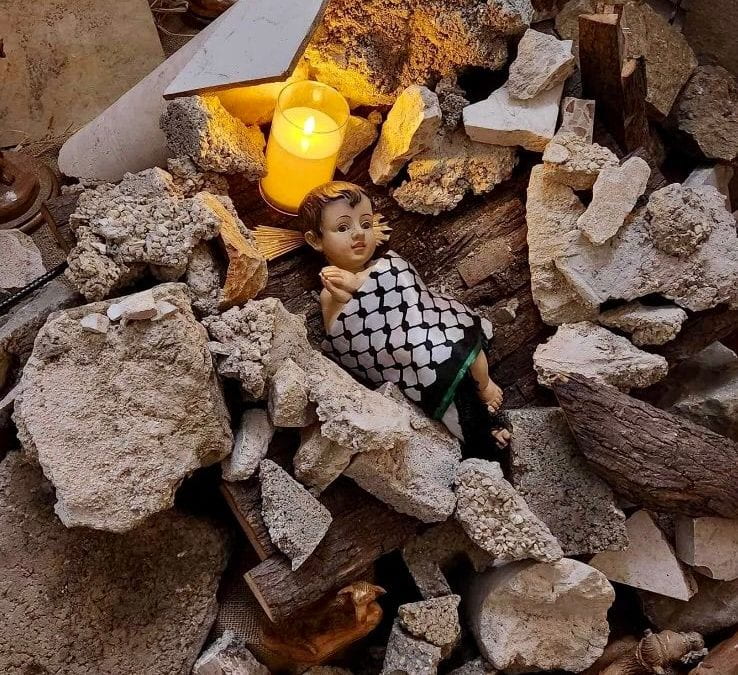By Katia Khodr | Staff Writer
In times of war, celebrating might seem incongruent with the prevailing atmosphere of hardship and devastation. With the persistent genocide in Gaza and the West Bank and the continuous bombardment of Lebanon’s South, the entire region has been drowning in grief. To many, Christmas is a sacred celebration that cannot be ignored, and Lebanon has a history of overcoming hardships and dealing with national grief with the spirit of Christmas. Unfortunately, this has been abused as a trademark for those ignorant and indifferent to the genocide and massacre unfolding live on every media platform. Considering the state of Palestine and the South of Lebanon, criticism of the celebration of Christmas this season is surfacing, deeming it distasteful and ignorant.
Lebanon has had a reputation for bringing color to the dullness of winter—quite literally—with the bewildering frosting of the buildings and neighborhoods of Downtown Beirut and Beirut Souks, or the enchanting annual Christmas trees, many of which have been recognized worldwide. One ought to find the lengths and the efforts to revive the spirit of Lebanon, as both a Middle Eastern and Arab country, have been impressive but strange. Considering the ever-present decline in currency, withered political climate, and most significantly, the electricity shortages, Christmas time in Lebanon is often criticized and questioned. As of popular public opinion, one may humorously assume that voltages restricted from Lebanese citizens annually all contribute to a commercialized celebration of Christmas. However pessimistic of an approach, such opinions hold truth and justification, as the Lebanese people fall short of rights, privileges, and benefits by their own people. Nevertheless, the mere presence of blooming color works to many as a temporary warmth in times of cold, or especially a temporary distraction in our current period of distress.
It is essential to find a balance between acknowledging the struggles faced by those directly affected and allowing moments of joy and connection, to navigate celebration amidst adversity. Celebrating during a war requires a delicate balance between acknowledging the gravity of the situation and finding moments of joy and connection. These celebrations should be sensitive to the struggles faced by those directly affected by Israel, as well as those directly and indirectly affected by the waning condition of Lebanon and the region, fostering a sense of unity and solidarity in challenging times. Reverend Munther Isaac told The National News, “It’s a difficult image but as it’s Christmas, we also have kept a burning light inside to show hope.”
While preaching hope, gratitude, and resilience is the fundamental aspect of this season in Lebanon, one cannot but acknowledge the privilege of being capable of celebrating. Rev Isaac makes it clear to The National News, “While the world celebrates Christmas with big festivities, in the homeland of Christmas, children are being killed, homes are being destroyed and families displaced.” In other words, while many are celebrating the birth of Christ, and many others are celebrating the decorum of this season, the mere ability to practice celebration implies a privilege of living and existing without consistent bombardment and devastation. The Lutheran church in Bethlehem has even molded what may be the most tragic image of birth and of life, a model of newborn Christ, wrapped in the Keffiyeh, embraced by the cold and hard rubble instead of the warm, motherly embrace of our lady Virgin Mary. As a season that observes the birth of Christ, the location of this miracle stands witness to nothing but death.
References
Badam, R. T. (2023, December 7). Baby Jesus lies amid rubble in Bethlehem church Christmas nativity scene. The National News. https://www.thenationalnews.com/mena/palestine-israel/2023/12/07/baby-jesus-lies-amid-rubble-in-bethlehem-church-christmas-nativity-scene/?outputType=amp

